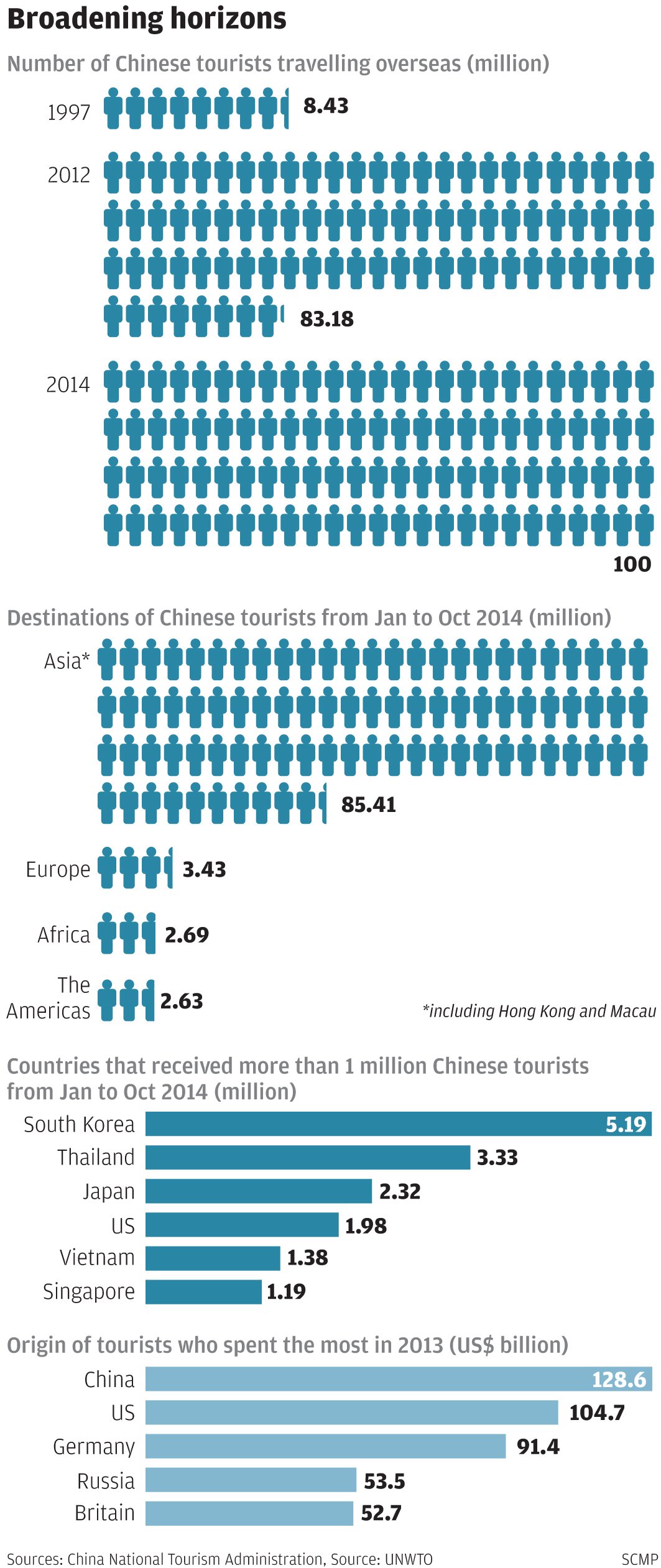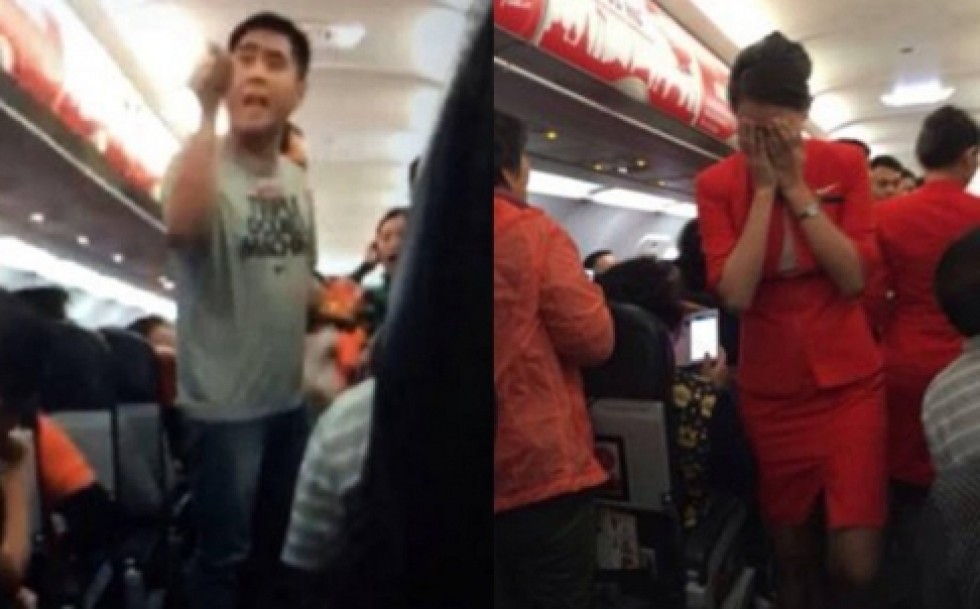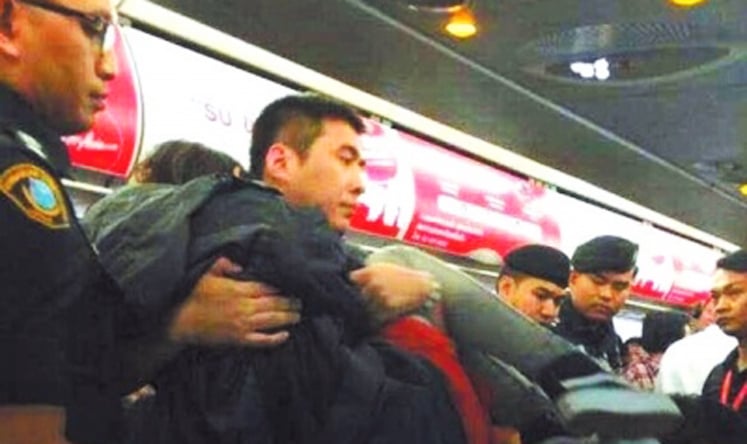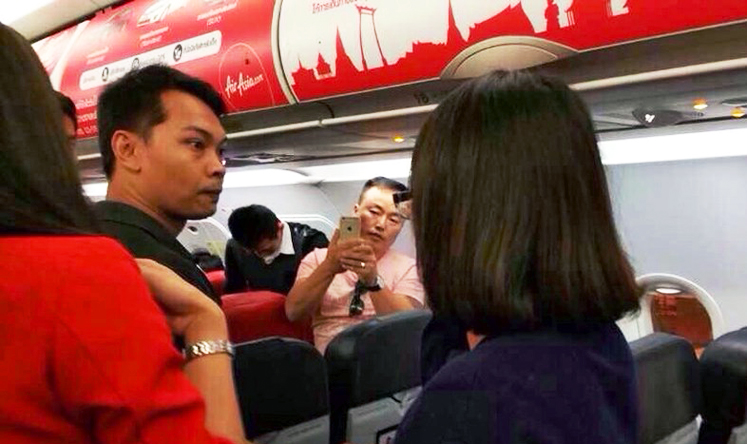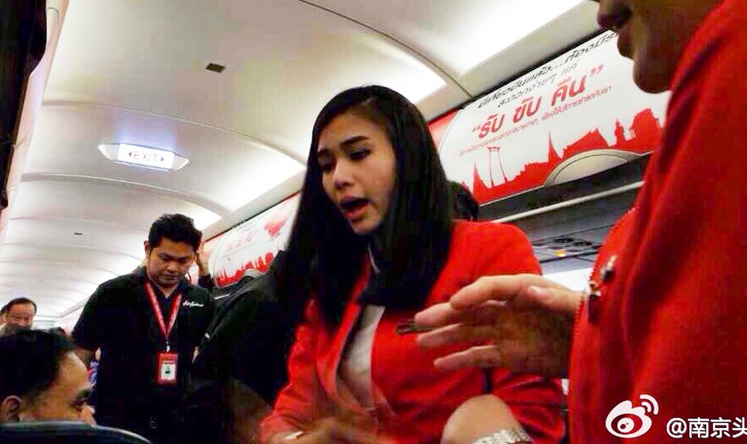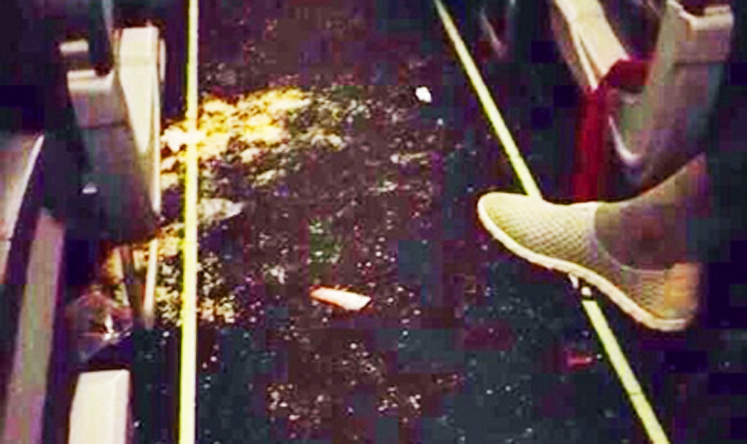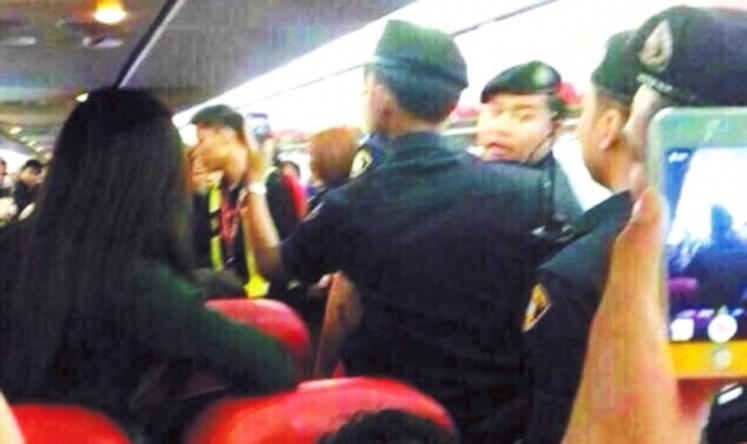Rude awakening: Chinese tourists have the money, but not the manners
Mainland tourists are still, unfortunately, maintaining their reputation for boorish behaviour as more spread their wings and travel abroad
PUBLISHED : Wednesday, 31 December, 2014, 2:39am
UPDATED : Wednesday, 31 December, 2014, 2:19pm
Amy Li [email protected]

When a busload of Chinese tourists took a break at a highway toll station near Frankfurt, Germany, on an autumn afternoon in October, their translator and guide Linda Li told her charges they could use the toilet for €0.7 (HK$6.62).
"If you don't have the change, come to me," the veteran tour guide recalled telling them.
The mention of the fee caused a stir on the bus. Many were on their first overseas trip and grumbled that back home in China pay-to-use toilets cost only 0.5 yuan (HK$0.63). Several of the men decided not go to the loo. Instead, they walked to an open spot to relieve themselves.
Li shook her head and looked away - she had half-expected them to do so because it is common among first-time Chinese travellers.
But what happened next took even her by surprise: a well-dressed middle-aged man followed suit to pee in public.
"I was dumbfounded," said the tour guide of seven years. "This same person who refused to pay €0.7 had on the same trip spent thousands of euros on a Vacheron Constantin watch."
The incident captured all too acutely the conundrum host countries find themselves in: boorish Chinese tourists bringing them piles of cash but also mountains of problems. The visitors seem to have the means, but not the manners. Locals get upset, facilities get damaged, tempers are frayed, and in many cases other tourists turn tail when they know the Chinese are coming, causing a dent in earnings.
And their ranks keep growing. By November, more than 100 million mainland Chinese had travelled abroad this year, a record for China, according to the China National Tourism Administration (CNTA). For the whole of last year, 98.2 million went overseas. Asian destinations, including Hong Kong and Macau, continued to receive the bulk of the travellers - 85.4 million by November. Europe, their second most popular destination, hosted 3.4 million over the same period, while Africa, in third place, drew 2.7 million Chinese visitors.
Their burgeoning numbers mean bigger spending. The Chinese overtook Americans and Germans as the world's top-spending tourists in 2013, according to the World Tourism Organisation, an agency of the United Nations, (UNWTO). While the Chinese spent US$128.6 billion on international travel, Americans spent US$104.7 billion and Germans US$91.4 billion. The latest UNWTO data shows the Chinese remain the biggest spenders this year.
While this side of the balance sheet to Chinese tourism is welcomed, destination countries also have had to cope with the ugly side of this particular travel boom. Last year, a 15-year-old Chinese tourist defaced a stone sculpture in a 3,500-year-old Egyptian temple with graffiti, generating a stir worldwide and a backlash at home. Many Chinese cringed at the shame and embarrassment brought on them. The boy's parents later apologised.
In Hong Kong, tensions have risen against the Chinese tourists and spilled into furious name-calling. Anger reached boiling point earlier this year when a mainland couple allowed their two-year-old to defecate on a Hong Kong street. Mocking the mainlanders, a group of Hong Kong protesters sat on yellow plastic poos in a crowded mall.
Chinese tourists made international headlines yet again this month after four threw hot water and noodles at a Thai flight attendant. They were reportedly angry over their seating arrangements and the lack of receipts for their tickets. The CNTA promptly "blacklisted" the tourists from joining overseas tours offered by Chinese travel agencies.
Swamped by the avalanche of criticism against their citizens, the Chinese authorities are resorting to lecturing, cajoling and the law to change behaviour. The country's first tourism laws came into effect in October last year, tackling mostly domestic tourism infractions.
The authorities also published guidelines for travelling overseas, which state: "Tourists shall observe public order and respect social morality in tourism activities, respect local customs, cultural traditions and religious beliefs, care for tourism resources, protect the ecological environment, and abide by the norms of civilised tourist behaviour."
A month before that, the CNTA published an 64-page illustrated Guidebook for Civilised Tourism to educate the travelling public on social norms abroad, offering advice on topics from queue jumping to toilet use.
Even President Xi Jinping weighed in, urging his countrymen to behave overseas. "Do not leave water bottles everywhere. Do not damage coral reefs. Eat less instant noodles and more local seafood," Xi advised during an official visit to the Maldives in September.
- Chinese tourists must be taught good manners to protect image of country
- Chinese passenger opens emergency exit ‘to get some fresh air’ as plane prepares for take-off
- 'They behaved like barbarians': state media blasts Chinese tourists who scalded Thai stewardess
In the Indian Ocean island nation, whose economy relies heavily on tourism and which received 332,000 Chinese tourists last year, some luxury resorts last year stopped providing Chinese guests with hot water to stop them skipping meals in favour of cup noodles, triggering anger and calls for a boycott on China's social media.
"Sadly, Xi's speech has made no impact whatsoever on the tourists," said Jenny Wang, a Beijing-based Maldives travel agent. "The good ones are good, but the bad apples remain the same."
She added that many still did not tip, even though they had been advised to do so and told that service workers in the Maldives rely on tips to boost their meagre earnings.
Seasoned guides also point a finger at the cut-throat competition among travel agencies to sell tour packages. The low prices tend to attract lower-end customers who have not been exposed to the world through travel. While boorish behaviour broke all class barriers, those unused to travel tend were more likely to behave poorly, the agents said.
Li said that in recent years many mainland agencies would advertise tours at unrealistically low prices, sometimes barely covering the air tickets. To make money, tour guides would later be forced to collect extra fees from travellers, or take them on "shopping tours". Both practices have been banned by China's tourism authority.
On Ctrip.com, China's largest online travel agency, a six-day tour of Thailand from Shanghai was being sold for just 3,999 yuan (HK$5,000) last week. The package included a guide, meals, round-trip tickets and five nights' stay at "five-star hotels", according to its advertisement. A typical return flight from Shanghai to Bangkok would cost anything between 1600 and 2800 yuan.
"Travelling abroad is a luxury," said Li, who works for a top travel agency in Sichuan . "But the fact is we are selling our tours at such low prices that people on lower incomes and with little education can now easily afford them. Unlike seasoned travellers, they know little about foreign culture and customs.
"Most of the middle-class travellers I have worked with are educated, civilised and always well behaved.
"If we sell international tours for no less than 5,000 yuan, we will be able to weed out a lot of 'bad tourists'." She suggested China set minimum tour prices in law to end unfair competition and deceptive marketing.
Wang echoed Li's sentiments: "Those on a limited budget are usually rude and obsessed with taking advantages of others."
Tour guides say it is extremely hard to manage or "educate" the "bad" tourists. In the latest incident, the assault of the Thai flight attendant, the CNTA said it might also punish the tour guide travelling with them, but tour operators said this was unfair.
"If their parents failed to teach them good manners in all these years, how are we supposed to do it?" Li protested.
Travel experts also say that Chinese tourists tend to be unfairly tarred by the same brush as the mischief-makers even though many of the travellers behave impeccably.
"My mainland guests all turned out to be extremely polite and educated," said Liu Fong-yu, a lawyer who rents rooms at his home in Taipei to travellers on the popular online accommodation service, Airbnb.
"Once I took my guests to the Eslite bookstore, and they bought books by Haruki Murakami and Anton Chekhov.
"Two sisters who recently stayed with me chatted with me until 1am about the works of renowned Taiwanese writer and poet Chiang Hsun."
Retired engineer Shi Ming from Chengdu, Sichuan province, is a passionate traveller who tries to "observe and interact" with locals when touring. Despite her limited English, she made friends across 23 states during a tour of the United States in 2011.
During one flight she sat next to a native American woman.
"We chatted with the help of dictionaries and drawings," Shi said. "She shared her snacks and we exchanged life stories."
Li Jinglong, an assistant professor at the department of tourism management at Anhui University's School of Business, said: "Educating our tourists should be a priority for China. Otherwise, things will only get uglier."
China could start by encouraging its tourism industry to explore "education-based" tours, he said.
"In the US, Britain, Australia, and Taiwan, governments and NGOs have set up educational groups, for example in national parks, where visitors learn about nature and making a difference as a volunteer," Li said.
"In China, tourism is about making money.
"If we manage to teach Chinese travellers to respect and protect nature through such activities, they will become more civilised and responsible tourists wherever they go."
Other scholars, however, say courtesy begins at home. "We need to admit that Chinese people are rude abroad because they are rude at home," said Liu Simin, a researcher with the Tourism Research Centre of the Chinese Academy of Social Sciences.
Many Chinese tourists were new to travel and had not mastered the skills of appreciating other cultures, Liu said. Like China itself, they catapulted from near-isolation to embracing the world in double quick time.
